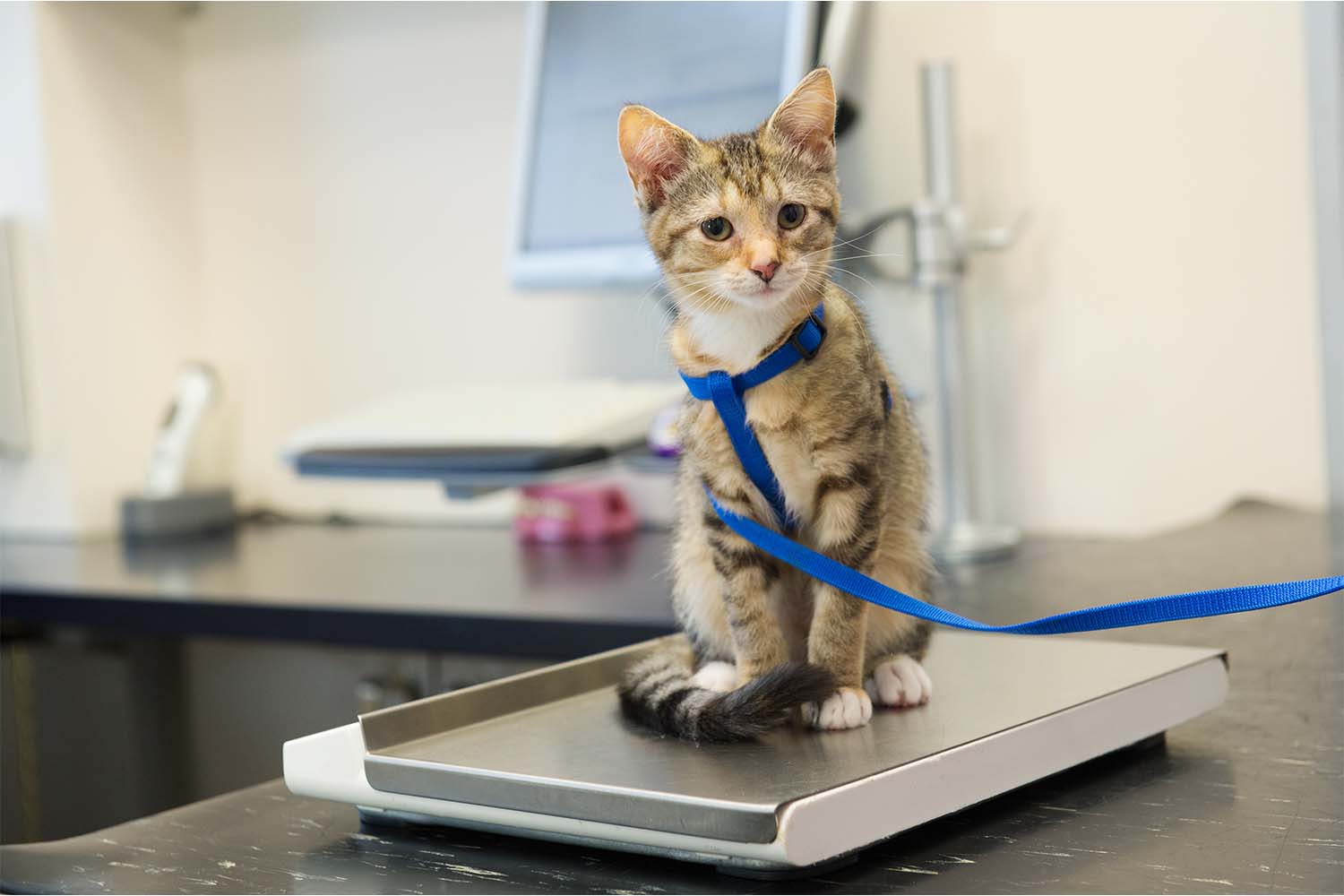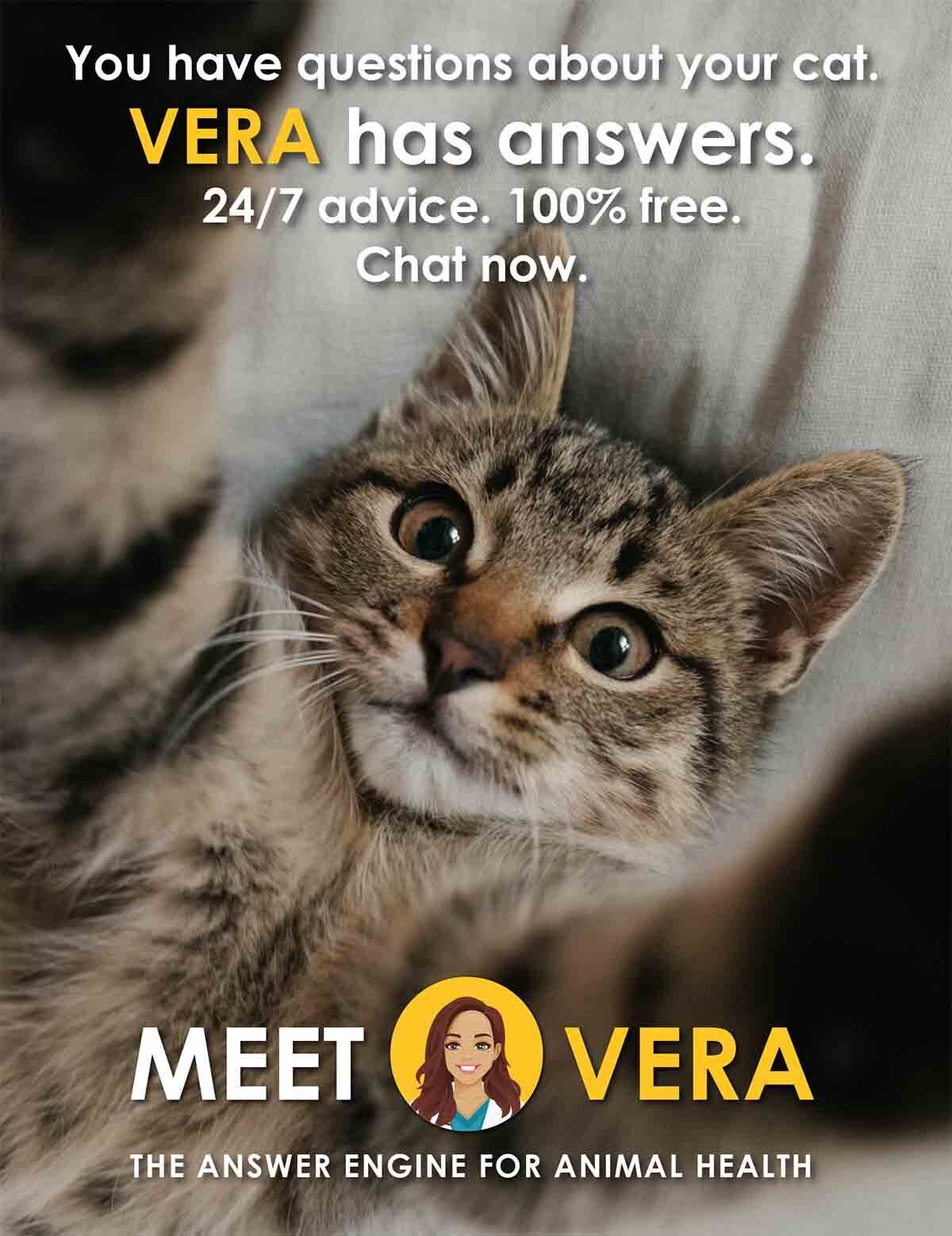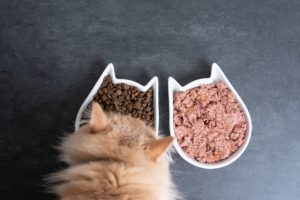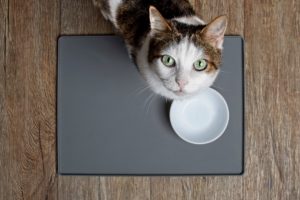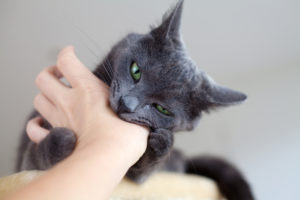When you look at your cat, do you always wonder if they’re a healthy weight? If they need more or less food, and maybe some more exercise? Knowing how to balance their diet, exercise, play, and sleep needs are going to change depending on what cat you have. All cats are different and have different needs.
Some might be more physically active, meaning they need to intake more food on a daily basis to combat their high activity levels. Others tend to prefer sleeping in the sunshine or on your lap and might need to be watched to make sure they don’t snack more than is healthy.
Your cat is unique and adorable (and we are sure you already know this), so you might be surprised to find where your cat fits on the weight chart. Keep reading to learn more about finding a healthy weight for your cat.
What Is an “Average” Cat Weight?
Unfortunately, there is no such thing as an average cat weight. This is because there is no such this as an average cat. All cats are different in size and needs.
Therefore, it’s hard to determine what would be considered average. Certain cat breeds will have certain averages in weight and size, so it’s important that you understand the average for your cat’s specific breed and gender.
You might not even realize if your cat is overweight or underweight, but learning how to balance their nutrition and physical activity can help maintain their weight and keep them healthy. Cats can range from six pounds to 25 pounds, so make sure you are looking specifically into their breed’s average.
How Can You Determine a Healthy Cat Weight?
When you bring your cat to a vet, they might weigh them, but they will also determine if they are healthy with the Body Condition Scoring (BCS) System. This system allows for visible guidelines that can help determine whether your cat is at a healthy weight or not.
If you can significantly see your cat’s ribs and there is a jagged dip in their hips, they might be underweight. If your cat’s belly is round and protruding on the sides, with a large pouch underneath, they might be overweight.
Truthfully, it does come down to your specific cat breed’s average weight, so knowing what that is can be helpful. On average, a domestic cat might be healthiest around the ten pounds mark, but that range is by no means the law, nor is it set in stone.
What Is Considered Overweight for a Cat?
If you cannot see the outline of your cat’s body, and they seem to be round, with a skin pouch hanging from their underneaths, it might be time to work them onto a diet. They should have somewhat of an hourglass figure to them, so if this is not the case, you might run into health concerns later on. Keep in mind that some cats, like Bengals, naturally have a slight pooch under their bellies (thanks to their wild cat ancestors).
An overweight cat will be apparent, but they are also well-loved, so many people don’t consider it to be that much of an issue. A cat can easily gain weight if they are overeating and not getting enough exercise. Some cats are more chill than others, so you have to be on top of their diets more so than an active kitty.
What Is Considered Underweight for a Cat?
If a cat is happy and healthy, they are likely to want to eat and play, and their weight will reflect this. If you have recently taken in a stray cat or adopted a cat, you might be able to see their ribs more prominently. Getting your cat to a healthy weight will take some time and dedication, but if they are comfortable and trusting of you, they will be more apt to eat their food.
In order to help your cat reach a healthy weight, your feline friend might be recommended to eat more cat food or opt for a higher-calorie diet. You will still want to ensure your cat is getting plenty of exercise to keep their appetite up and learn how to maintain their weight.
Average Cat Weights by Breed
Here is a list of cat breed weight averages:
- Domestic Shorthair cats: A healthy weight is between 6 and 12 pounds.
- Persian cats: A healthy weight is between 7 and 14 pounds.
- Devon Rex cats: A healthy weight is between 6 and 9 pounds.
- Sphynx cats: A healthy weight is between 6 and 12 pounds.
- American Shorthair cats: A healthy weight is between 7 and 12 pounds.
- Munchkin cats: A healthy weight is between 4 and 9 pounds.
- British Shorthair cats: A healthy weight is between 9 and 18 pounds.
- Maine Coon cats: A healthy weight is between 8 and 20 pounds.
How Your Cat Can Maintain a Healthy Weight
If your cat is struggling with their weight, either they can’t keep it off, or they can’t gain any weight, there are things you can do to help them maintain it.
First of all, what you are feeding your cat will have a direct impact on their weight. You should discuss with your veterinarian if the food you are feeding your cat is nutritious enough. A well-balanced diet will ensure your cat is as healthy and happy as possible.
On top of a nutritious diet, exercise and play are really important to maintain a healthy weight. If your cat is known as a sedate breed, this might mean you actively play with them throughout the day to ensure they exercise. Soon, you’ll be an expert in wands and teasers, puzzle toys, and balls with delicate bells inside them.
If your cat is known to be active and energetic, this might not be as big of a problem. Though, an active kitty might get hungry easier. It’s critical that you don’t overfeed them, even if they are burning calories!
Checking with your vet for any underlying health-related issues might also explain some of your cat’s weight issues (if they have any). Understanding these underlying causes might make giving your cat a proper diet and exercise regime easier.
Your cat controls a lot in their own life, but you are likely the food supplier, so being mindful of what you’re giving your cat can ensure a happy life in the long run. Your cat may try to peer pressure into pulling out the snacks by yelling at 3 AM every morning, but stay strong. You can do this.
AskVet Can Help
To better understand your cat’s weight and health, consider signing up with AskVet, now for only $9.99/month. You will have access to vets who can answer all your cat-related questions (and all animal-related questions at that). Discussing your cat’s eating and exercise habits can give them a better understanding of what your cat might be going through and if you need to make changes for them.
With AskVet, you don’t have to worry about waiting for a vet appointment to get medical advice for your animal. Our services help you to protect your pet and keep them as healthy and happy as possible. Sign up today and see just what it is we are all about!
Sources:
Body Condition Scoring (BCS) Systems | American Animal Hospital Association
Ideal Dog and Cat Weight Ranges | Pet Obesity Prevention
Feeding Your Cat | Cornell University College of Veterinary Medicine

